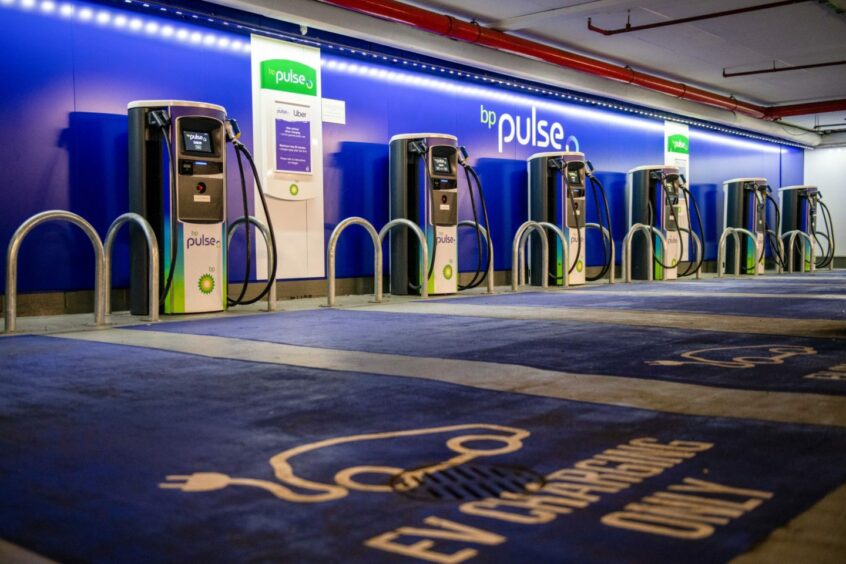 © Bloomberg
© Bloomberg BP has cut more than a tenth of its workforce from its electric vehicle charging business, BP Pulse, and pulled out of several markets, it has been reported.
According to a Reuters report citing company sources, BP’s bet on rapid growth in commercial EV fleets has not paid off as sluggish growth has seen slower than expected demand.
BP Pulse had a workforce of around 900, but over the last few months, more than 100 jobs have been cut. Additional employees have been moved to other divisions within BP, with sources saying only a handful remain with the EV division.
BP Pulse will now focus on four core markets – the US, UK, Germany and China – where it expects the fastest growth in the EV market, the BP sources told Reuters.
However, it still has a presence in Australia, New Zealand and France, which it earmarked as growth countries, and Spain, Portugal and India through joint ventures.
Reuters noted that CEO Murray Auchincloss, who took over the company earlier this year, has been refocusing the company towards its more profitable segments as investors show doubts over its energy transition plans.
In an analysts call in February, he warned that governments have eased mandates for switching to EV vehicles, slowing down a transition in commercial fleets to EVs that the company was banking on.
“We thought fleets would move first. But given recessionary pressures and some relief from governments, fleets have slowed down,” Auchincloss said.
BP added more than 7,000 charging points in 2023, bringing the total to around 29,000, according to its annual report. The company aims to have 100,000 charging points by 2030.
In 2022, the company announced plans to invest £1 billion in EV charging in the UK over the next decade triple the number of charging sites from 9,000 by 2030.
“Our EV ambitions have not changed,” Reuters quoted BP as saying, adding that the changes at BP Pulse are “a step towards ensuring that we can execute our goals with even greater precision and effectiveness”.
Energy Voice contacted BP for a comment.
